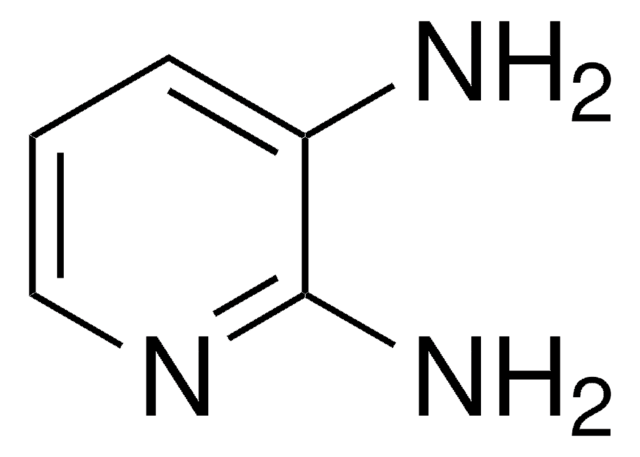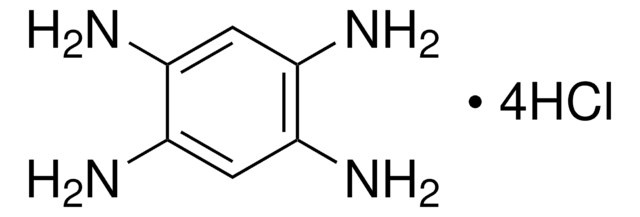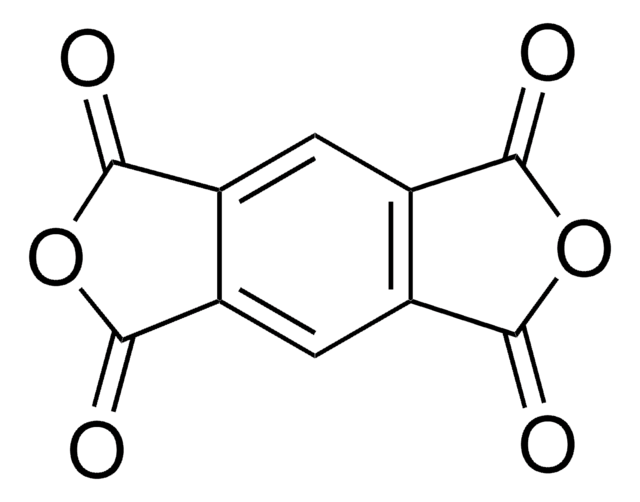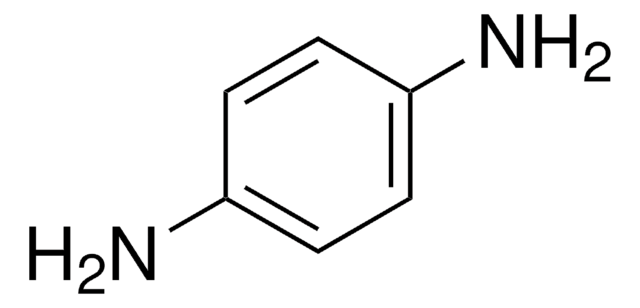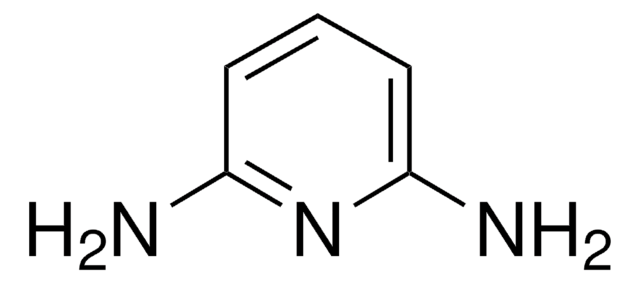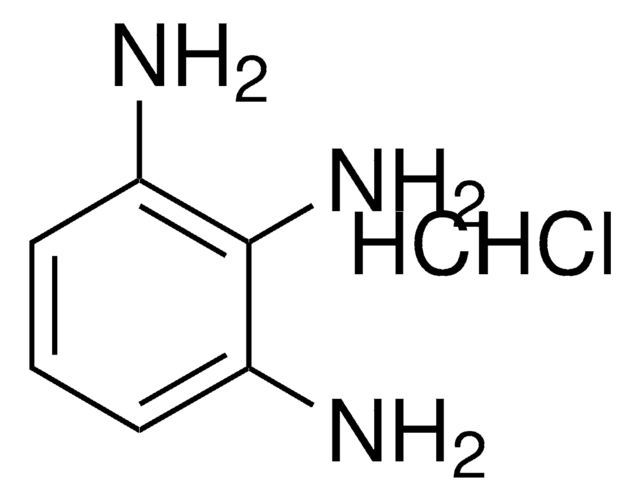305065
1,2,4,5-Benzenetetramine tetrahydrochloride
≥95%
Synonym(s):
1,2,4,5-Tetraaminobenzene tetrahydrochloride
Sign Into View Organizational & Contract Pricing
All Photos(1)
About This Item
Linear Formula:
C6H2(NH2)4·4HCl
CAS Number:
Molecular Weight:
284.01
Beilstein:
3701344
EC Number:
MDL number:
UNSPSC Code:
12162002
PubChem Substance ID:
NACRES:
NA.23
Recommended Products
Assay
≥95%
≥95.0% (AT)
mp
≥300 °C (lit.)
SMILES string
Cl.Cl.Cl.Cl.Nc1cc(N)c(N)cc1N
InChI
1S/C6H10N4.4ClH/c7-3-1-4(8)6(10)2-5(3)9;;;;/h1-2H,7-10H2;4*1H
InChI key
BZDGCIJWPWHAOF-UHFFFAOYSA-N
Looking for similar products? Visit Product Comparison Guide
General description
1,2,4,5-Benzenetetraminetetrahydrochloride is widely used as a novel source of carbon and nitrogen insynthesizing benzimidazole-linked polymers and carbon dot nanomaterials.
Application
1,2,4,5-Benzenetetramine tetrahydrochloride can be used as a precursor in the synthesis of:
- A pyrene-based benzimidazole-linked polymer by the co-condensation with 1,3,6,8-tetrakis(4-formylphenyl)pyrene in dimethylformamide.
- Triazine-based benzimidazole-linked polymers for highly selective CO2 capture.
- Nitrogen-doped carbon dots (NCDs) by simple hydrothermal method, applicable as a highly selective fluorescent probe for sensing Mg2+ ions in an aqueous solution.
- Red-emitting carbon dots via the solvothermal method.
Storage Class Code
11 - Combustible Solids
WGK
WGK 3
Flash Point(F)
Not applicable
Flash Point(C)
Not applicable
Personal Protective Equipment
dust mask type N95 (US), Eyeshields, Gloves
Choose from one of the most recent versions:
Already Own This Product?
Find documentation for the products that you have recently purchased in the Document Library.
Customers Also Viewed
Halszka Ponamarczuk et al.
Frontiers in bioscience (Landmark edition), 23, 1612-1627 (2018-01-03)
Protein disulfide isomerase (PDI) is an abundant reticulum endoplasmic protein but also acts as an important functional regulator of some extracellular surface proteins. Recent studies suggest that PDI plays a role in integrin activation and thrombus formation. The aim of
Mei Meng et al.
Shock (Augusta, Ga.), 51(1), 88-96 (2018-02-10)
The gut is a continuously renewing organ, with cell proliferation, migration, and death occurring rapidly under basal conditions. As the impact of critical illness on cell movement from crypt base to villus tip is poorly understood, the purpose of this
Ali M Ethaeb et al.
Apoptosis : an international journal on programmed cell death, 25(1-2), 29-41 (2019-10-28)
Accumulation of tissue factor (TF) within cells leads to cellular apoptosis mediated through p38 and p53 pathways. In this study, the involvement of Src1 in the induction of TF-mediated cell apoptosis, and the mechanisms of Src1 activation were investigated. Human
Daisuke Aoyama et al.
PloS one, 8(11), e81133-e81133 (2013-11-28)
Transforming growth factor β (TGFβ) derived from the tumor microenvironment induces malignant phenotypes such as epithelial-mesenchymal transition (EMT) and aberrant cell motility in lung cancers. TGFβ-induced translocation of β-catenin from E-cadherin complexes into the cytoplasm is involved in the transcription
Lei Wang et al.
Nanoscale, 9(12), 4090-4096 (2017-03-16)
Nanostructured semiconducting polymers have emerged as a very promising class of metal-free photocatalytic materials for solar water splitting. However, they generally exhibit low efficiency and lack the ability to utilize long-wavelength photons in a photocatalytic oxygen evolution reaction (OER). Here
Our team of scientists has experience in all areas of research including Life Science, Material Science, Chemical Synthesis, Chromatography, Analytical and many others.
Contact Technical Service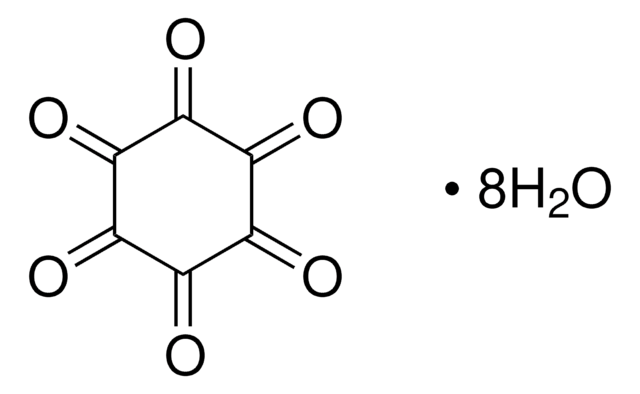

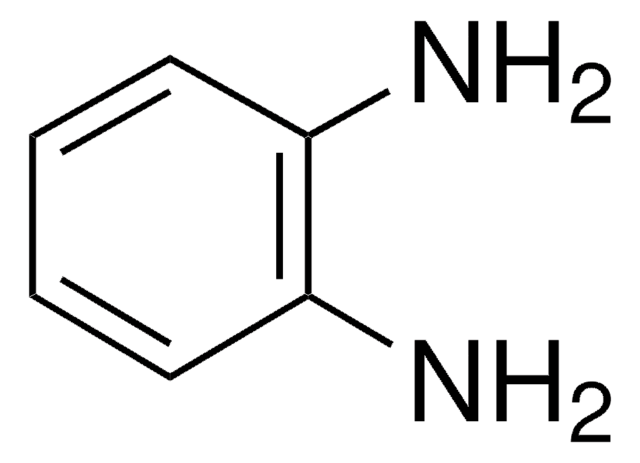
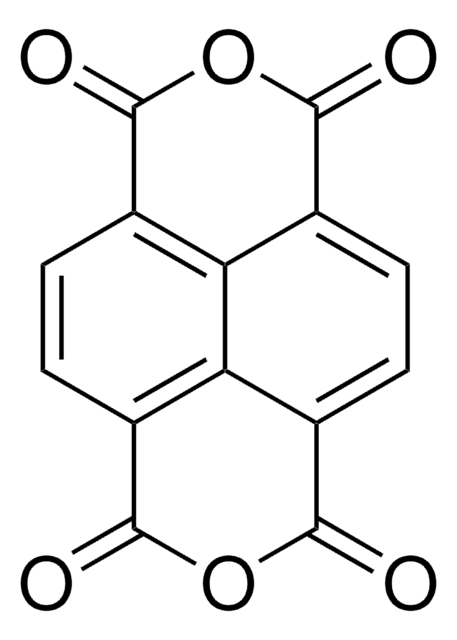
![Dipyrazino[2,3-f:2′,3′-h]quinoxaline-2,3,6,7,10,11-hexacarbonitrile 95% (HPLC)](/deepweb/assets/sigmaaldrich/product/structures/151/558/c0e2c95f-5228-4864-a7a5-4b9765a19840/640/c0e2c95f-5228-4864-a7a5-4b9765a19840.png)
